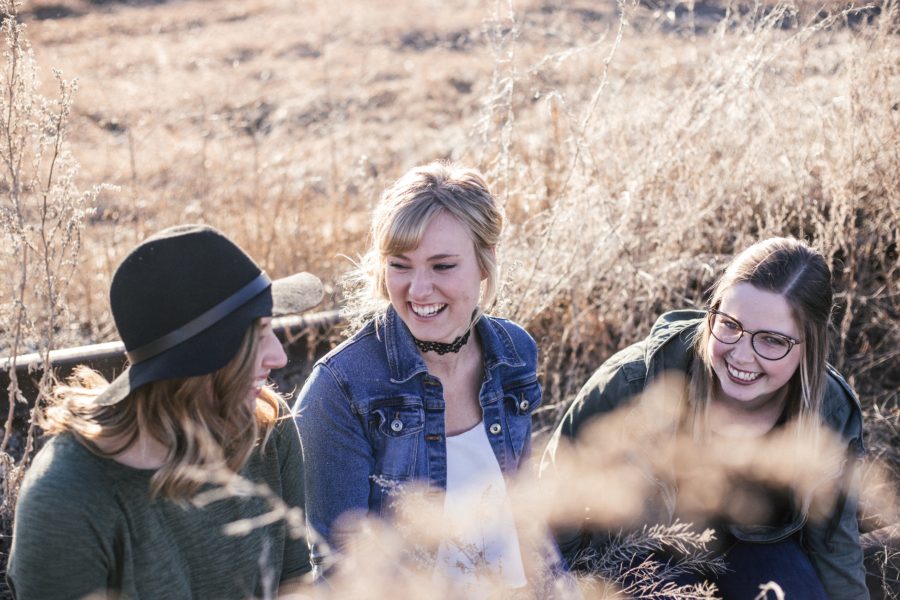
When my family made plans to live abroad for a stretch of three months, we envisioned the many ways the experience would enrich us. An adventure in the works for many years, our itinerary was thoughtfully planned: three weeks of on-the-go travel around Germany and Austria, a tiny jaunt to Rome, and a stretch of two months staying put in Cologne, Germany. We didn’t hesitate to crown the trip with plenty of expectations. Language acquisition! Culture refinement! Family bonding! Over the months we lived abroad, our hopes were realized: The summer in Europe brought many extraordinary blessings.
But the one aspect I found myself wholly unprepared for during our time away was the intense loneliness I felt. In theory, I knew three months away from home, friends, and all things familiar would be tough. Still, I figured, as an introvert, I could power through pretty easily. I like my alone time…a lot. A break from certain difficult people in my life sounded like bliss. Plus, I reasoned, this season would be a wonderful opportunity to grow closer to my family since we’d be together almost nonstop.
It didn’t take long to realize how much I take community for granted and what it truly brings to my life.
We had chosen to live in Cologne not because we knew anyone in the area, but because we found a great deal on a spacious apartment there. So, with zero connections, we arrived as complete strangers in one of the largest cities in Germany. Part of our game plan for the trip was cultural immersion. But having no technical reason to be in Cologne—such as work, school, or family—meant we had no obvious “in” for immersing ourselves and forming relationships. My husband worked remotely online, and the kids and I had time off for the summer. No one expected us to show up anywhere on any given day. Plus, we hadn’t really considered one all-important question: How do you meet people in a foreign country when four out of five people in your family don’t speak the language?
The answer: With great difficulty—or not at all.
Though we did meet one American expat couple at Cologne’s one tiny English-speaking church and made a few tentative connections here and there, we largely floated like untethered constellation dots, socially speaking. Even if I wanted to call a friend back home—which sounds easy enough in this age of on-demand communication—I had to coordinate the nine-hour time difference, then hope our Skype or FaceTime connection wouldn’t repeatedly drop. When phone calls succeeded, they helped, but definitely weren’t the same as sharing conversation over a cup of coffee or a meal.
As the weeks went by, I spent more time with my laptop than with people, turning to Netflix and Facebook to fill the void. I went for a lot of solitary walks, wishing I could marvel at the sights of the city with a friend. And when I once went for a haircut, I probably came across as a garrulous nut in my delight at having someone to socialize with for an hour (albeit in my less-than-perfect German).
I began to feel like I was living on the only desert island in Europe.
On days when I felt really down, I would sit on the floor of my bedroom and mentally page through all the people and places that comprise my community in Mesa, Arizona. I thought of all the times I had brushed off people who I had something in common with, and what I would give right then to talk to someone—anyone—from home. There, on the hardwood floor, a silent vow rose within my spirit: When we got home, I would no longer waste opportunities for meaningful connection.
While I’m not an especially friendly or gregarious person, upon our return, I found my usual interpersonal reservations fell away. I took time to thank helpful service people at the grocery store. I smiled at strangers and waved at my neighbors. I stopped pretending I didn’t recognize people at church or my kids’ school. Instead, I greeted them enthusiastically, reminding them of whatever connection we might have made in the past, however minor. Why shouldn’t we be friends?
RELATED: 6 Good Reasons To Get To Know Your Neighbors
My heart also filled with compassion for all the people around me living without community, whether cross-country transplants, refugees, or any of the one-third of American adults who now say they experience loneliness at least once a week. I give thanks now for the work, church, and neighborhood networks that keep me from being among that number and hold fast to a renewed commitment to stay invested in each of them.
Community is a gift that often goes unappreciated. In the age of social media, our frequent interactions with others online can sometimes blind us to our need for meaningful connection in real life. While we may not realize it in our day-to-day lives, research shows that social connectedness comprises a major part of our well-being. Despite the difficulty of experiencing loneliness for a prolonged stretch, I can see now that it had deep, hidden value. Going without the presence of friends close by for months at a time lit a fire in me to never go without community again. With eyes opened to the beauty of connection, I’m determined to cultivate it more ardently than ever.
Originally published on